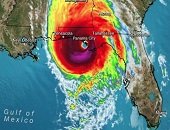World Energy Outlook
On October 24, 2023, the International Energy Agency (IEA) released its annual report, World Energy Outlook (WEO), to an international audience. The agency states that the energy world “remains fragile but has effective ways to improve energy security and tackle emissions.” Agency analysts looked at how close the countries of the world are to meeting the objectives of the Net Zero Emissions by 2050 (NZE) Scenario, which limits global warming to 1.5 °C, a goal signed by many countries and often referred to as the Paris Agreement. [As of March 2021, 194 states and the European Union have signed the […]
Bearing Witness
Climate change is the biggest issue of the present day. It affects the physical world, and will irrevocably change economics and business. For scientists coping with climate changes, today we at TextMedic pause to consider: How does it feel to know you are studying the last of certain species? or ecosystems that are irreparably damaged? Today’s weekly magazine of the New York Times calls itself “the climate issue.” Several pieces of excellent journalism speak about climate change. The most poignant article in the climate issue profiles 7 scientists whose life’s work will soon be made irrelevant, due the destructive power […]
The Role of Insurance in Recovery
Climate change is bringing on events, such as hurricanes and wildfires, of greater severity and frequency than ever before. How does insurance help communities rebuild? What economic barriers arise during recovery? Is insurance the best way to provide disaster relief? These are some of the questions tackled by Carolyn Kousky of the Environmental Defense Fund (EDF) in her recent book and research. She is a co-editor of A Blueprint for Coastal Adaptation and author of Understanding Disaster Insurance: New Tools for a More Resilient Future. On October 19, 2023, Carolyn Kousky, Associate VP, Economics and Policy Analysis at EDF, gave a presentation on […]
Managing Water Risk
Flooding, drought, and the polluted quality of water pose a business risk to the agricultural sector, which affects everything from geopolitical risk to inflation. What is the cause of water risk, and how can it be mitigated? On October 3, 2023, Catherine David, Director of Collaboration and Change at Waste and Resources Action Programme (WRAP) and a specialist in water risk, spoke about water management designed for sustainability. The webinar was sponsored by the Global Association of Risk Professionals (GARP) and was moderated by Jo Paisley, President, GARP Risk Institute. “According to the FAO,” David said, “by 2030, global demand for […]
The Future of Work
Now that the Covid-19 pandemic fears are receding, what is happening to the average workplace—will it become more or less virtual? Will some workers prefer to continue working from home and refuse to commute? As for generative AI—how will that change the future of work? “There will always be work to do, but it will be different from the work we know now,” said Mary C. Daly, President and CEO of the U.S. Federal Reserve Bank of San Francisco (FRBSF), known informally as “the Fed.” She was the introductory speaker on September 8, 2023, at a presentation outlining the Fed’s […]
The Greenium
Does the average household want to invest in climate-friendly assets? If so, what proportion of assets are earmarked for green investments? What kinds of assets (equity or fixed income) are preferred? “Green investments are popular, but only about one-third of German households have some kind of green account,” said Monika Piazzesi, Professor of Economics at Stanford University. She was speaking at a webinar titled “Household Climate Finance: Theory and Survey Data on Safe and Risky Green Assets,” held on September 7, 2023, as part of the Virtual Seminar on Climate Economics sponsored by the Federal Reserve Bank of San Francisco (FRBSF). Her […]
Shelter Inflation
The welcome news this summer is that the overall rate of inflation is easing up, both in the U.S., where it has dropped to its lowest level in over two years, and to a lesser extent, in Canada, where in July, Canada’s inflation rate fell to 2.8 percent. Gasoline is pulling the inflation rate down, while food and mortgages were pushing it up. How has the U.S. housing market responded to the rise in interest rates? How do recent trends in the cost of house prices and rents affect the likelihood of future shelter inflation? “Various market indicators, including house […]
Heat Lowers the GDP
Every season, but particularly summer, reminds us that global warming is occurring at an alarming rate. The average global temperature will continue to rise over time if people do not take substantial action to reduce greenhouse gases, especially carbon emissions. What effect will soaring temperatures have on economic productivity? How will warming effects be distributed over the globe? Will these have a long-lasting effect on the GDP? Recent research by economists at the Federal Reserve Bank of San Francisco (FRBSF) delves into these questions. “Our findings show that total global losses in output per person could be substantial,” say the […]
The Meerkat Way
Given that climate change is the biggest economic upheaval of our age, what can risk professionals do? What, exactly, is meant by a “net-zero transition,” and why does each organization need a transition plan to reach it? How should risk professionals get started? On May 23, 2023, the membership of the Global Association of Risk Professionals (GARP) was invited to a one-hour webinar titled “Net-Zero Transition Plans” that promised to answer these questions and more. Tony Rooke, Executive Director and Head of Transition Finance at the Glasgow Financial Alliance for Net Zero (GFANZ), delivered the webinar. GFANZ is a global […]










